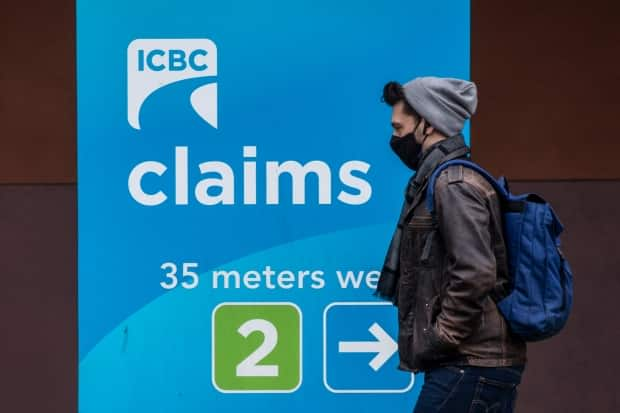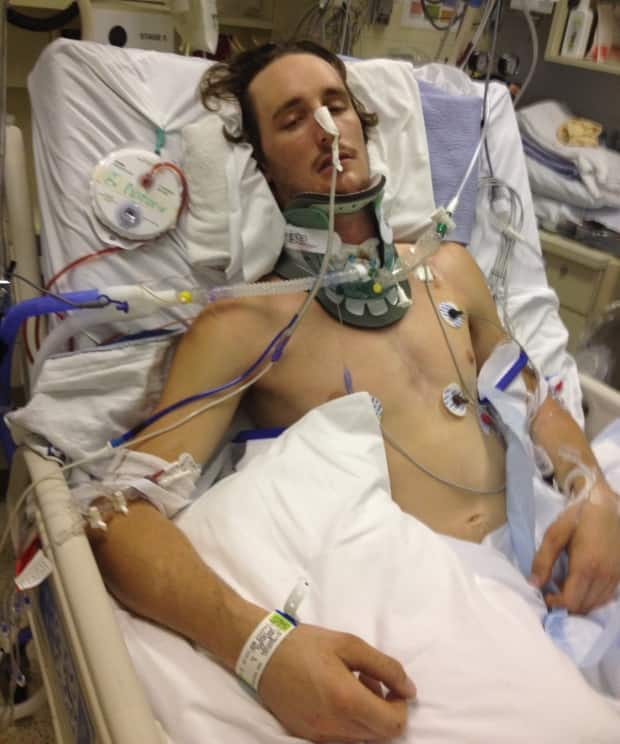Lawyer behind $900M ICBC lawsuit accuses province of effort to 'interfere' with court process

A lawyer behind a $900-million class-action lawsuit against ICBC and the B.C. government is accusing the province of interfering with the courts through legislation to end what could be a costly legal matter.
Scott Stanley filed a class-action lawsuit last year claiming successive provincial governments since 1973 have been secretly and illegally using ICBC monies — between $16 million and $60 million annually — to reimburse the public Medical Services Plan for car crash victims' doctor visits.
He alleges that's led to poorer medical care for crash victims who haven't received the full benefits they are entitled to and too-high premiums for drivers insured by ICBC, who've essentially been paying for crash victims' doctor costs twice: once through their tax contributions to MSP and again through their ICBC premiums.
None of his allegations have been proven in court. Certification hearings for the still-uncertified class-action lawsuit began Monday.

On April 15, Stanley received a letter from Attorney General David Eby stating the government plans to introduce legislation that will "include provisions that are explicitly retroactive and provide clear statutory authority for the reimbursement."
A spokesperson for the Ministry of Public Safety, which is responsible for ICBC, confirmed to CBC News legislation will be coming.
Stanley said it's an attempt to kill the lawsuit.
"I think people can reach their own conclusions and ask themselves, why is the attorney general trying to interfere in a lawsuit that's before the court unless he thinks the province is going to lose?" Stanley said.
"This sure could be construed as a cover up by the NDP."
Government says reimbursement is 'fair and equitable'
The lawsuit seeks an estimated $899,724,536, plus damages and interest. If it is successful, Stanley said, it could mean every provincially-insured driver and injured crash victim in B.C. is entitled to a share of almost $1 billion.
Stanley said the reimbursement has allowed the province to keep health care costs artificially low and avoid the unpopular act of raising taxes.
At the same time, he said, the reimbursement has contributed to rising driver insurance premiums and lower injury pay-outs to crash victims. He believes it is part of the reason ICBC has faced financial problems.

Eby, in his letter to Stanley, stated the provincial government believes the arrangement where ICBC reimburses the medical system is "fair and equitable to British Columbians."
"Absent reimbursement, the payment of these costs of health-related services incurred as a result of the inherent risks associated with driving would otherwise burden all British Columbian taxpayers," the letter reads.
Since forming government in 2017, the NDP has been highly critical of the B.C. Liberals for their administration of ICBC. Eby's letter notes the repayment arrangement was last modified in 1994 — when his NDP was in power.
Lawyers concerned
Two lawyers not connected to the case said the legislation threat is concerning.
Personal injury lawyer Richard Parsons, a board member of the Trial Lawyers' Association of B.C., called it an unusual, "draconian" course of action.
"Instead of acknowledging this problem and trying to rectify it, they just write themselves a new law to protect themselves," Parsons said. "That's a problem."
Long-time injury lawyer Don Renaud agreed.
"You don't retroactively pass legislation to make something that was previously illegal legal," Renaud said. "At least I hope not."
Many of the NDP government's efforts to trim ICBC's bloated legal costs have been met with criticism and challenges from the Trial Lawyers' Association and individual lawyers.
Stanley said he plans to continue pushing for the class-action to be certified regardless of whether or not the legislation is introduced or passed.
CBC Vancouver's Impact Team investigates and reports on stories that impact people in their local community and strives to hold individuals, institutions and organizations to account. If you have a story for us, email impact@cbc.ca.

